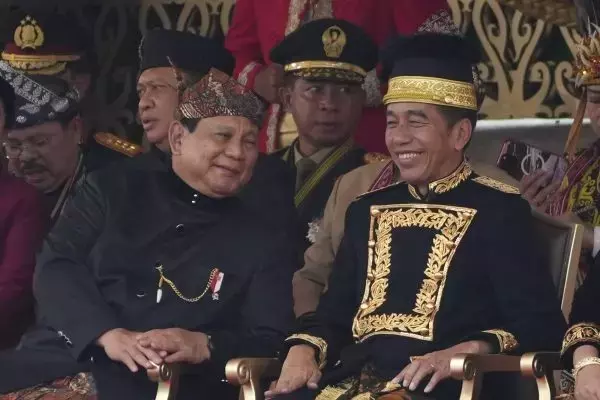Indonesia's Expanding Cabinet: Balancing Growth and Governance
As Indonesian President-elect Prabowo Subianto prepares to take office, speculation abounds about the size and composition of his cabinet. With reports suggesting a potential increase in the number of ministers, the incoming administration faces a critical juncture in balancing economic progress and political stability.Forging a Formidable Coalition: Prabowo's Strategic Maneuver
Prabowo's strategy of assembling a broad coalition is not without precedent. During the presidential election, his support came from a diverse array of parliamentary parties, including his own Great Indonesia Movement (Gerindra), the Functional Group Party (Golkar), the Democratic Party, and the National Mandate Party (PAN). This coalition-building approach has continued, with the addition of parties that previously backed his rivals, such as the National Democratic Party (NasDem), the National Awakening Party (PKB), the Prosperous Justice Party (PKS), and the United Development Party (PPP).The rationale behind this strategy is multifaceted. By expanding his coalition, Prabowo aims to secure a stronger parliamentary presence, potentially minimizing opposition and ensuring a smoother legislative process. However, this approach also raises concerns about the potential concentration of power and the implications for Indonesia's democratic landscape.The Paradox of a Dominant Coalition
While Prabowo's coalition-building efforts have yielded significant political gains, they have also left the Indonesian Democratic Party of Struggle (PDI-P) as the sole major parliamentary party outside the ruling government. This dynamic raises questions about the future of checks and balances within the Indonesian political system.Prabowo's recent comments, in which he argued that opposition is not in line with Indonesian culture, further underscore his preference for a collaborative, consensus-driven approach to governance. This perspective, while potentially appealing in the short term, carries long-term risks that Indonesia must carefully consider.Lessons from Global Experiences: Singapore and Bangladesh
The global experiences of Singapore and Bangladesh provide valuable insights into the potential outcomes of a government with diminished opposition. Singapore's economic success under the dominant People's Action Party (PAP) serves as a testament to the potential benefits of a focused, growth-oriented approach. However, this achievement has come at the cost of individual freedoms, as evidenced by the country's "soft authoritarian" governance style.In contrast, Bangladesh's trajectory under the long-standing leadership of Sheikh Hasina offers a cautionary tale. Despite the suppression of opposition parties, the country has struggled to achieve the same level of economic prosperity as Singapore, with its GDP per capita remaining relatively low. The recent protests that forced Hasina's resignation further highlight the risks of a government without meaningful checks and balances.Navigating the Path Ahead: Balancing Prosperity and Accountability
As Indonesia embarks on this new chapter under Prabowo's leadership, the country faces a critical juncture. The potential expansion of the cabinet and the consolidation of power within the ruling coalition raise concerns about the future of democratic institutions and the balance of power.While a government with minimal opposition may offer the promise of rapid economic growth, the experiences of Singapore and Bangladesh suggest that this approach carries significant risks. Sustainable prosperity is often better achieved in democratic systems with strong opposition, as studies have shown that the presence of political competition can increase GDP per capita by as much as 20 percent in the long term.Ultimately, the Indonesian people must carefully consider the trade-offs between economic progress and political freedoms. As the nation moves forward, it will be crucial to maintain a delicate balance between the pursuit of prosperity and the preservation of democratic principles, ensuring that the country's development is not achieved at the expense of its citizens' fundamental rights and liberties.You May Like


